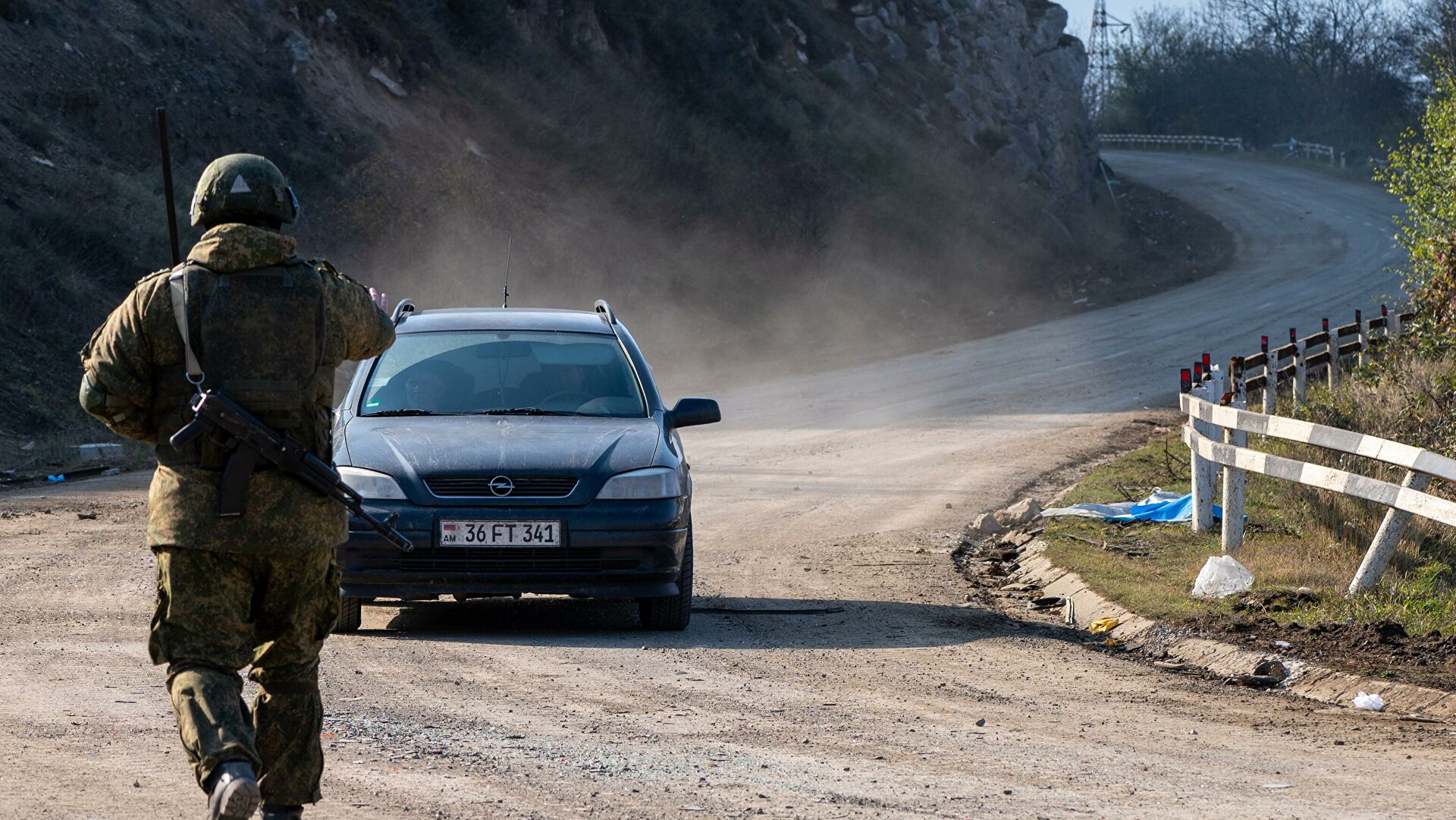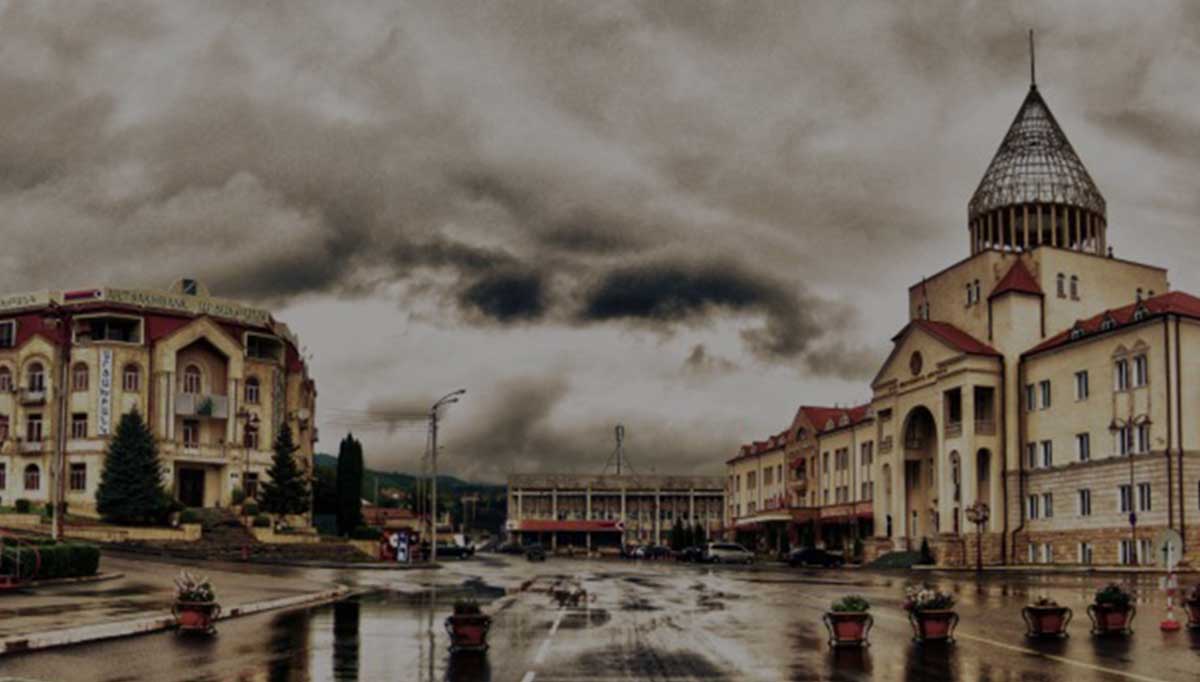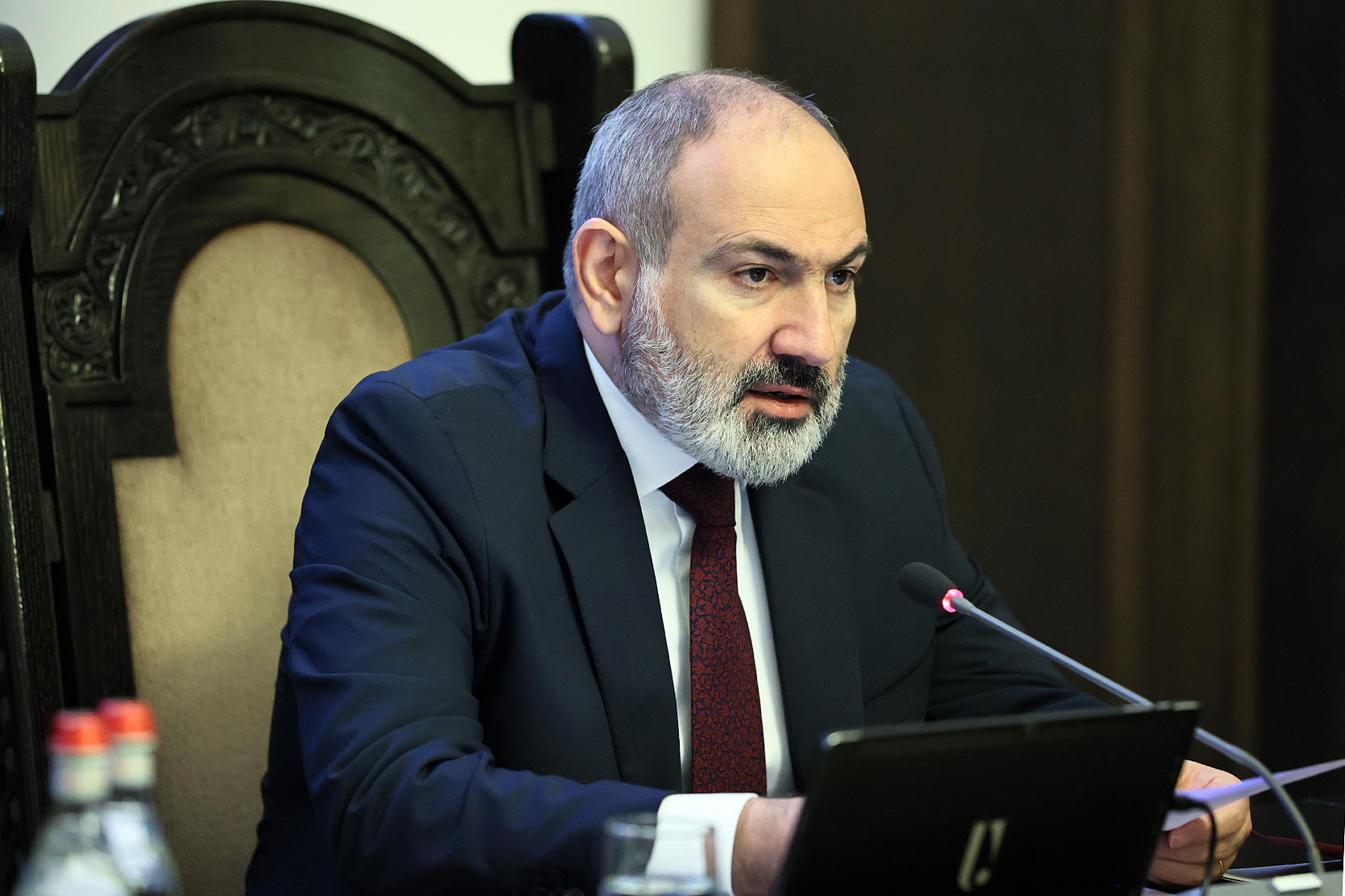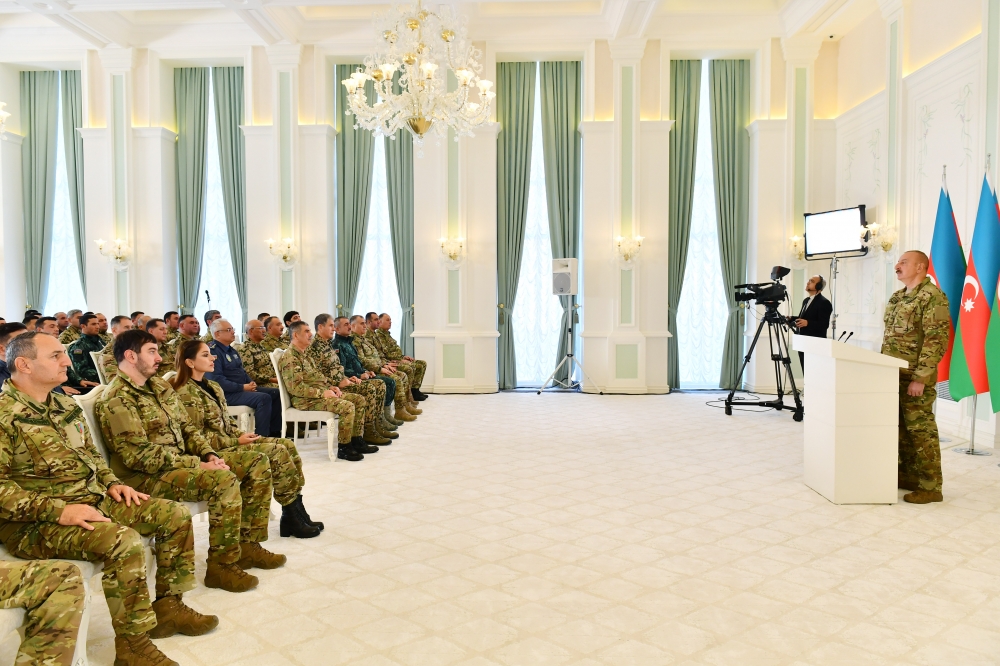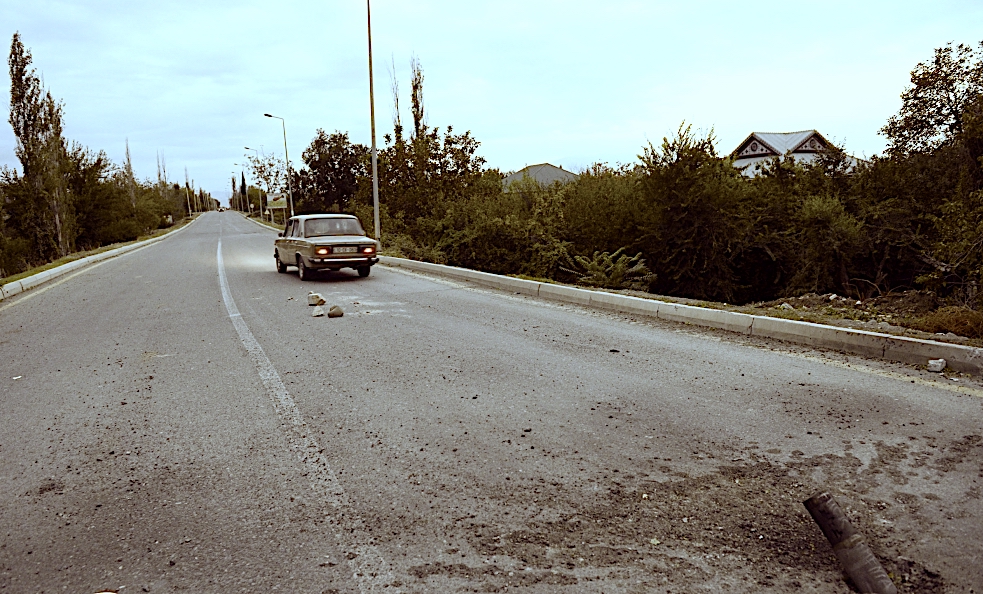Environmentalists or agents provocateurs? Opinion from Yerevan
Azerbaijani environmentalists in the Lachin corridor
This morning a group of Azerbaijanis once again blocked the Stepanakert-Goris highway “for environmental reasons”, and twelve hours later the only road connecting Nagorno-Karabakh to Armenia remains closed.
According to Armenian assessments of the event, Azerbaijan “intends to carry out ethnic cleansing and expel the Armenian population of Artsakh; there is a threat of genocide.” According to Azerbaijani media, “the demand of the environmentalists conducting the action is a meeting with the commander of the Russian peacekeeping troops,” since the day before they failed to conduct monitoring at the Drmbon and Kashin mines.
With another escalation in Nagorno-Karabakh looming, a telephone conversation took place between the leaders of Armenia and Russia. According to official Yerevan, the discussion included “how to resolve the situation in the Lachin corridor.” The Kremlin’s version, however, says nothing about this.
According to political scientist Suren Surenyants, this indicates that Moscow has not yet decided how to resolve the situation, whether “to use coercive methods or negotiations.” Surenyants believes that the Lachin corridor will be opened in the next few hours or tomorrow, and that the “goal of permanently closing the corridor has not been set.”
Details from the scene, assessment from the Prime Minister of Armenia, a reaction from NK and commentary by a political scientist.
On December 12, the information headquarters of the NK reported that at 10:30 a group of Azerbaijanis in civilian clothes again blocked the Stepanakert-Goris highway:
“Considering the aggressive and destructive behavior of Azerbaijan unacceptable, the authorized state bodies of Artsakh are taking all possible measures to resolve the situation and maintaining contact with the command of the Russian peacekeeping contingent.”
Hours later, the following message arrived:
“Azerbaijan is trying to create a humanitarian catastrophe in Artsakh. Hundreds of citizens, including minors, are blocked on the road. Some of the people returned to Goris, the other part, accompanied by traffic police, were brought to Stepanakert. The transportation of medicines and patients with serious health problems has become impossible.”
In the evening, the residents of Stepanakert spontaneously began to gather at Renaissance Square to discuss the situation in the Lachin corridor.
The Ministry of Foreign Affairs of the unrecognized NKR regarded the closure of the Lachin corridor as “another manifestation of Baku’s genocidal policy, a destructive and criminal act aimed at
- intimidation of the people of Artsakh,
- creating an atmosphere of instability in the region,
- obstruction of the activities of the Russian peacekeeping mission”.
On December 3 the Azerbaijanis blocked the only highway connecting NK with Armenia, citing environmental concerns. On that day and on December 7, they negotiated with the command of the Russian peacekeeping forces to conduct monitoring of “illegal exploitation of natural resources and the environmental consequences of this activity.” Then Baku announced that, thanks to the negotiations, checks at the Drmbon and Kashen mines would begin on December 10.
However, employees of the mining organization and residents of nearby settlements blocked the entrance to the mines. After that, the Azerbaijani Foreign Ministry submitted a note to Russia demanding unhindered access to the mines “in accordance with agreements.”
Pashinyan: “The Lachin corridor is a corridor for the prevention of genocide”
Armenian Prime Minister Nikol Pashinyan made this statement at the 4th Global Forum Against the Crime of Genocide held in Yerevan:
“To close this corridor means to sentence the Armenians of Nagorno-Karabakh to genocide according to three scenarios:
- ethnocide, where the Armenians of Nagorno-Karabakh simply will not be able to live in their homes, on their land, as in the Hadrut region, where not a single Armenian remained after the 44-day war,
- loss of identity – Azerbaijan is fighting against toponyms and cultural and historical values of Nagorno-Karabakh,
- physical destruction itself.
The prime minister urged the international community to take the alarming signs of the threat of genocide in Nagorno-Karabakh seriously.
Pashinyan also said that “the most important mechanism for preventing genocide is dialogue and cooperation, including between Stepanakert and Baku.”
Ombudsman of NK: “Their goal is to discredit Russian peacekeepers”
Ombudsman Gegham Stepanyan told reporters that “Azerbaijani environmentalists” set up a few tents in the Lachin corridor, and the Azerbaijanis’ actions are directed against Russian peacekeepers:
“The goal is to discredit Russian peacekeepers and pave the way for the period of deployment of Russian peacekeepers here not to be extended after 2025.”
Appeal of deputies to the international community and Russian peacekeepers
The factions of the NK National Assembly condemned “the provocative actions organized by the military-political leadership of Azerbaijan.”
The deputies stressed that on the pretext of protecting the environment, the road was blocked by “Azerbaijanis who used phosphorus bombs against the civilian population of Artsakh” during the 2020 war.
“We call on the international community to take concrete steps to curb Azerbaijan’s aggressive aspirations. We call on the Russian peacekeepers, within the framework of the tripartite agreement, to stop the inhumane actions of the Azerbaijanis with tougher measures,” the statement says.
“It is necessary to prevent another genocide against Armenians”
Elisa von Joyden-Forgy, co-founder of the Lemkin Institute for the Prevention of Genocides, believes that the existing threats are enough for the international community to take steps to prevent “another genocide against Armenians, for example by imposing sanctions on Azerbaijan.”
“Otherwise, all our slogans about “never again” will be meaningless. The international community must put pressure on Turkey and Azerbaijan so they understand that they are not operating with impunity,” she said.
Comment
According to political scientist Suren Surenyants, Azerbaijan is pursuing several goals by closing the Lachin corridor:
- “to gauge Russia’s reaction and understand where their red lines are;
- diversify the communication of the Russian peacekeeping mission so that they can also connect to the transport infrastructure of Azerbaijan for their needs,
- to show the people of Nagorno-Karabakh that Baku is the master of the situation, including the fate of Artsakh,
- put pressure on Armenia, equating the Lachin corridor and the road that is to connect Azerbaijan with Nakhichevan,
- PR within Azerbaijan”
Surenyants told JAMnews that Aliyev would not have taken such a step had he expected a harsh reaction from the international community.
“He calculated that he could block the road for a day or several hours, obtain concessions from Armenia or from the international community, paying a small price.”
As for the possible reaction of Russian peacekeepers, Surenyants believes that Moscow’s tough opposition could lead to a new war. But, at the same time, Russia cannot allow “devaluation, discrediting the mission of the peacekeepers”, so they will try to “solve the problem through negotiations.”
“If the Kremlin has so far refrained from expressing a specific opinion in its statement, it means that they have not yet found a way to solve the problem. So far they are trying to decide which methods to use to get out of the crisis: coercion or negotiations,” Surenyants said.
Surenyants believes the corridor will be opened in the next few hours or tomorrow. He says that “goal of permanently closing the corridor has not been set.”
“Since there is no consolidated international pressure on Azerbaijan, it will agree to end this crisis in exchange for some concessions. But there is no guarantee that such a provocation will not happen again in a few days.”
Surenyants suggests that Baku will seek concessions on control of the mines or demand an enhanced corridor control mechanism.
Follow us – Twitter | Facebook | Instagram
Azerbaijani environmentalists in the Lachin corridor










